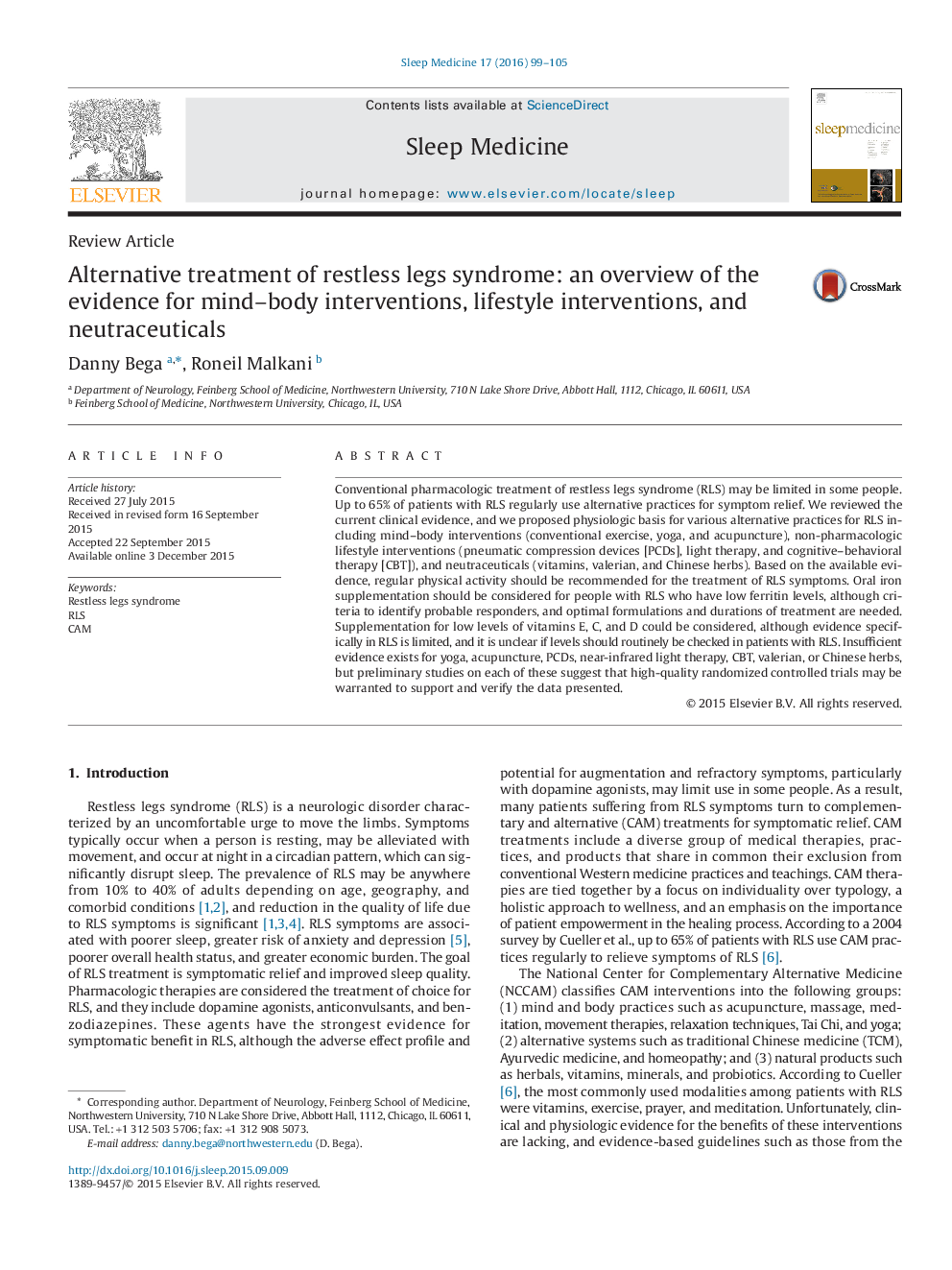| Article ID | Journal | Published Year | Pages | File Type |
|---|---|---|---|---|
| 6060621 | Sleep Medicine | 2016 | 7 Pages |
Abstract
Conventional pharmacologic treatment of restless legs syndrome (RLS) may be limited in some people. Up to 65% of patients with RLS regularly use alternative practices for symptom relief. We reviewed the current clinical evidence, and we proposed physiologic basis for various alternative practices for RLS including mind-body interventions (conventional exercise, yoga, and acupuncture), non-pharmacologic lifestyle interventions (pneumatic compression devices [PCDs], light therapy, and cognitive-behavioral therapy [CBT]), and neutraceuticals (vitamins, valerian, and Chinese herbs). Based on the available evidence, regular physical activity should be recommended for the treatment of RLS symptoms. Oral iron supplementation should be considered for people with RLS who have low ferritin levels, although criteria to identify probable responders, and optimal formulations and durations of treatment are needed. Supplementation for low levels of vitamins E, C, and D could be considered, although evidence specifically in RLS is limited, and it is unclear if levels should routinely be checked in patients with RLS. Insufficient evidence exists for yoga, acupuncture, PCDs, near-infrared light therapy, CBT, valerian, or Chinese herbs, but preliminary studies on each of these suggest that high-quality randomized controlled trials may be warranted to support and verify the data presented.
Keywords
Related Topics
Life Sciences
Neuroscience
Neurology
Authors
Danny Bega, Roneil Malkani,
